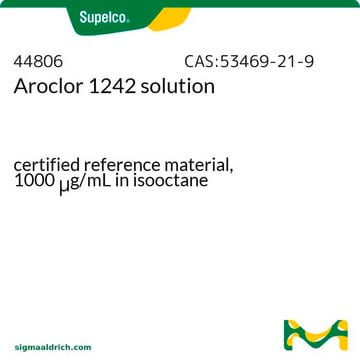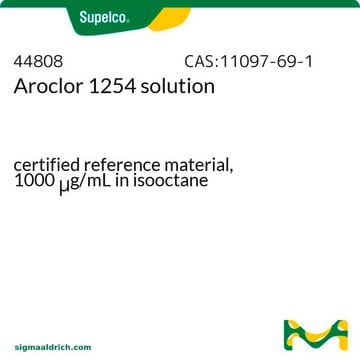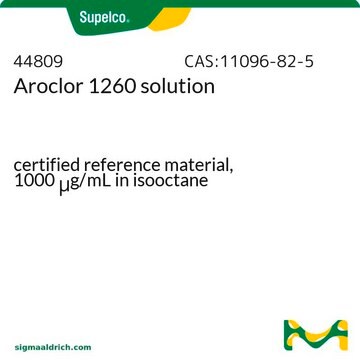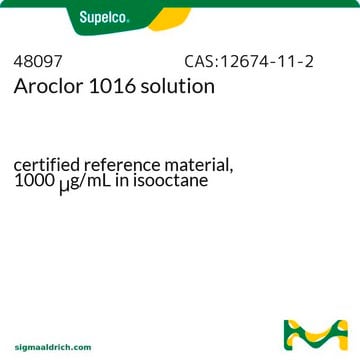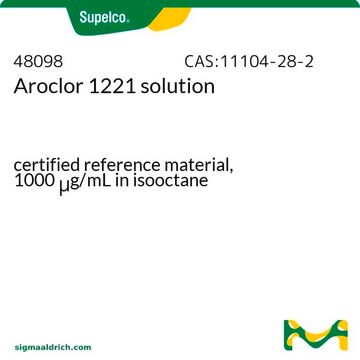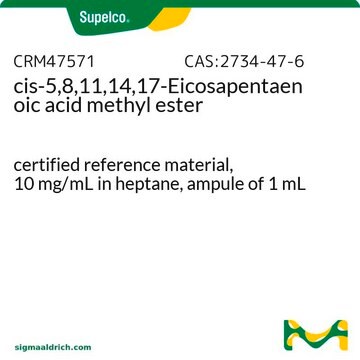44807
Aroclor 1248 solution
certified reference material, 1000 μg/mL in isooctane
About This Item
Produits recommandés
Qualité
certified reference material
TraceCERT®
Niveau de qualité
Agence
EPA 8082
Gamme de produits
TraceCERT®
CofA (certificat d'analyse)
current certificate can be downloaded
Caractéristiques
standard type calibration
Conditionnement
ampule of 1 mL
Concentration
1000 μg/mL in isooctane
Technique(s)
HPLC: suitable
gas chromatography (GC): suitable
Application(s)
environmental
Format
single component solution
Température de stockage
2-30°C
InChI
1S/C12H6Cl4/c13-9-1-7(2-10(14)5-9)8-3-11(15)6-12(16)4-8/h1-6H
Clé InChI
UTMWFJSRHLYRPY-UHFFFAOYSA-N
Vous recherchez des produits similaires ? Visite Guide de comparaison des produits
Application
Autres remarques
Informations légales
Mention d'avertissement
Danger
Mentions de danger
Conseils de prudence
Classification des risques
Aquatic Acute 1 - Aquatic Chronic 1 - Asp. Tox. 1 - Flam. Liq. 2 - Skin Irrit. 2 - STOT RE 2 - STOT SE 3
Organes cibles
Central nervous system
Code de la classe de stockage
3 - Flammable liquids
Classe de danger pour l'eau (WGK)
WGK 2
Point d'éclair (°F)
10.4 °F - closed cup
Point d'éclair (°C)
-12 °C - closed cup
Faites votre choix parmi les versions les plus récentes :
Déjà en possession de ce produit ?
Retrouvez la documentation relative aux produits que vous avez récemment achetés dans la Bibliothèque de documents.
Notre équipe de scientifiques dispose d'une expérience dans tous les secteurs de la recherche, notamment en sciences de la vie, science des matériaux, synthèse chimique, chromatographie, analyse et dans de nombreux autres domaines..
Contacter notre Service technique